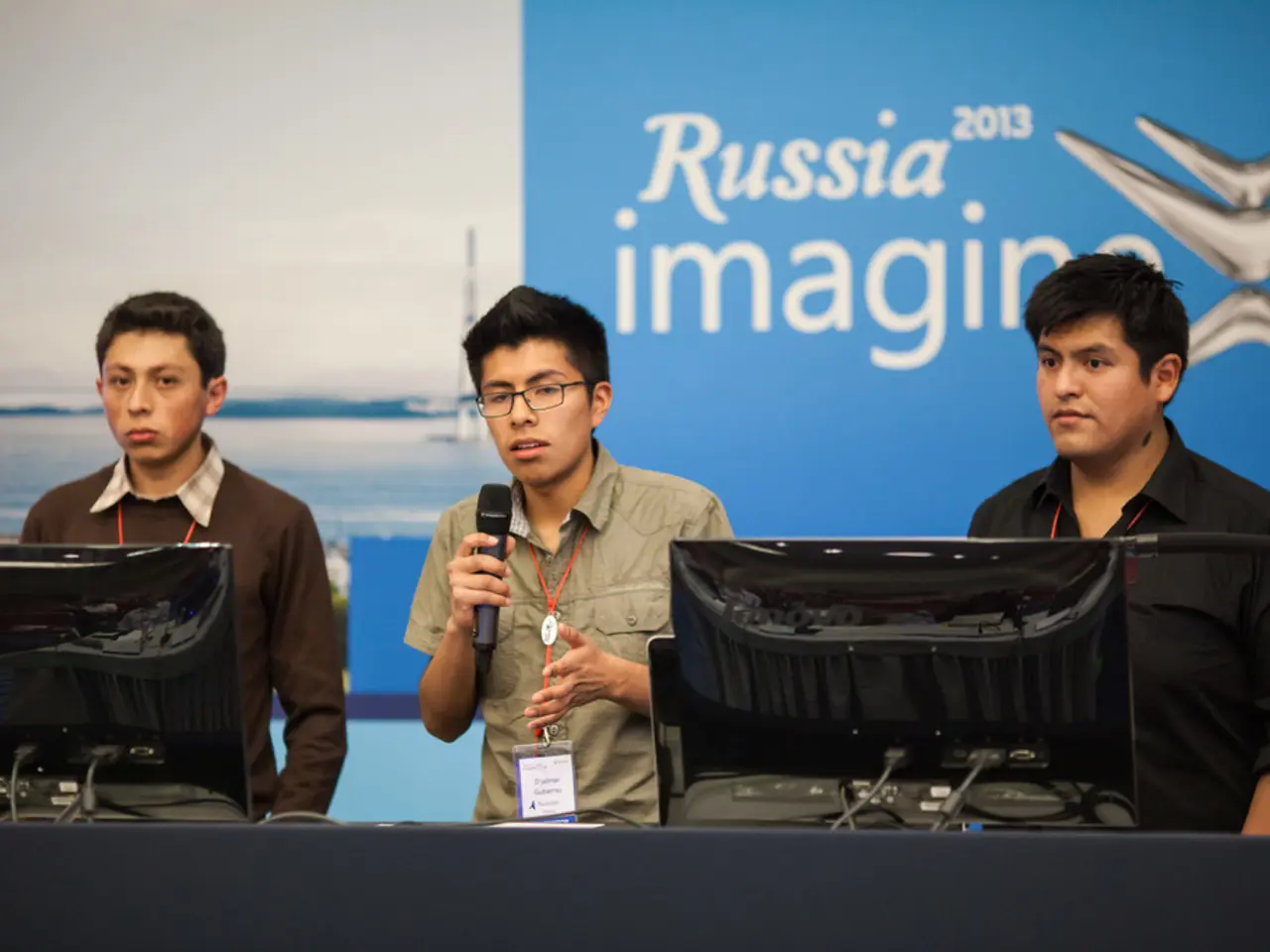Ukraine Conflict: Macron and Merz Advocate for Cessation of Hostilities from the White House
The White House played host to a significant discussion about the ongoing conflict in Ukraine on August 18, 2025. The gathering included world leaders such as President Donald Trump, Ukrainian President Volodymyr Zelensky, French President Emmanuel Macron, German Chancellor Friedrich Merz, and other European leaders.
The central focus of the meeting was the urgent need for a ceasefire in Ukraine. Both Chancellor Merz and President Macron emphasized the importance of a ceasefire, with the latter stating that a cessation of hostilities is necessary to put an end to the killings in Ukraine. Chancellor Merz also advocated for putting pressure on Russia to facilitate a ceasefire, while the German Chancellor insisted that a ceasefire should be in place before any negotiations for a peace agreement can commence.
However, as of late August 2025, the situation regarding a ceasefire in Ukraine remains tense and unresolved. Russian forces continue to conduct offensive operations in various regions, including Kharkiv, Sumy, Lyman, and Velykomykhailivka, with Vladimir Putin reportedly rejecting a full ceasefire while pushing territorial demands over parts of Donetsk Oblast as prerequisites for negotiations.
The Kremlin, through officials like Dmitry Medvedev, has framed talks as possible "without preconditions," but the reality is that Russia's demands and ongoing military actions suggest reluctance to commit to a comprehensive ceasefire or complete withdrawal.
In a notable shift, President Trump has moved away from advocating for a temporary ceasefire and instead supports increased aid to Ukraine. This change in position represents a departure from his earlier efforts towards a ceasefire or negotiations.
There are no direct current public statements from President Macron, Chancellor Merz, or President Zelensky explicitly reported in these recent assessments from the White House meetings about the ceasefire. However, Western leaders—including France’s Macron and Germany’s Merz—generally support continued assistance to Ukraine and diplomatic efforts but without Russian acceptance of key Ukrainian territorial integrity and sovereignty. Any White House discussion likely reflects continued Western backing of Ukraine's defense and postwar security guarantees.
The U.S. has reportedly expressed a willingness to support a European-led postwar security force for Ukraine, indicating preparation for longer-term security arrangements rather than an immediate ceasefire.
Amidst this ongoing conflict, President Zelensky continues to seek international support, with the hope that a definitive ceasefire agreement or joint statement from all these leaders about a ceasefire will be forthcoming. As of now, no such agreement or joint statement has been made available from these sources.
Read also:
- United States tariffs pose a threat to India, necessitating the recruitment of adept negotiators or strategists, similar to those who had influenced Trump's decisions.
- Weekly happenings in the German Federal Parliament (Bundestag)
- Southwest region's most popular posts, accompanied by an inquiry:
- Discussion between Putin and Trump in Alaska could potentially overshadow Ukraine's concerns




